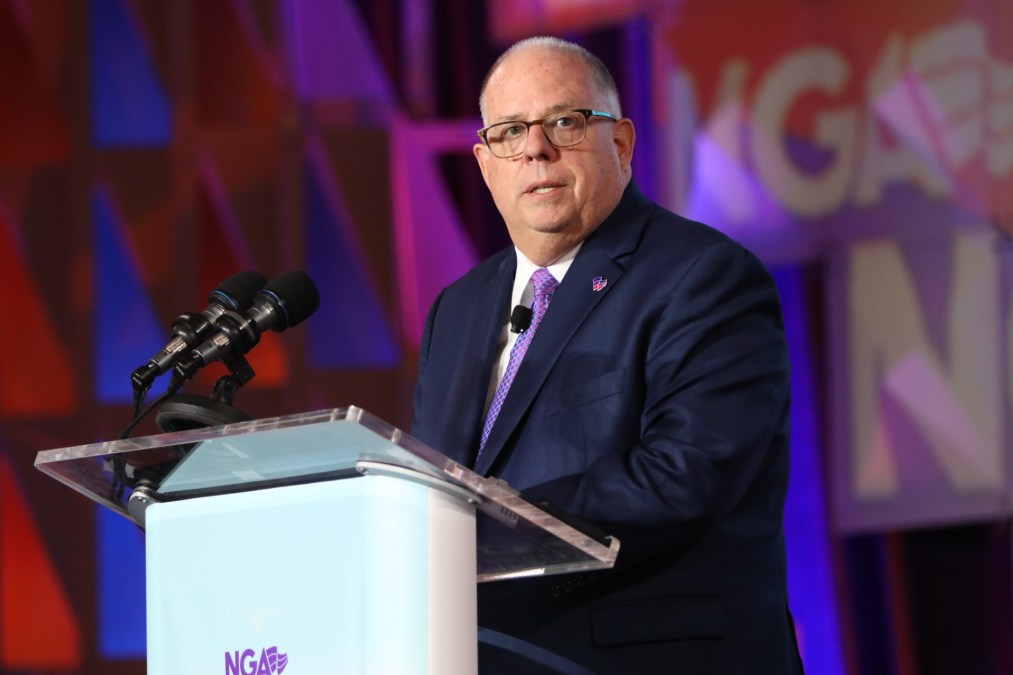States say next pandemic relief bill needs IT and cybersecurity aid

A group of 12 associations representing state and local officials on Wednesday asked Congress to include direct financial support for IT and cybersecurity infrastructure in any future emergency relief package responding to the COVID-19 pandemic.
In a letter addressed to congressional leaders, the coalition, led by the National Governors Association, wrote that the ongoing public health crisis has put unprecedented strains on state and local governments’ technology assets and opened them up to new cybersecurity risks that cannot be remedied without additional funding from the federal government.
“COVID-19 has required our workforces, educational systems and general way of life to quickly move remotely, exerting greater pressure on cybersecurity and IT professionals and increasing the risk of vulnerabilities and gaps to state and local networks,” the letter reads. “These gaps are exacerbated by systems requiring modernization that do not foster remote work, which also increases the risks to employees supporting these systems.”
Along with the NGA, the letter was signed by the National Association of State Chief Information Officers, National League of Cities, National Association of Counties and National Association of State Legislatures, among other groups.
States and cities moving the bulk of their employees to remote work has tested government IT functions in unforeseen ways as the pandemic arrived in the United States, including heightened risk of cyberattacks as workers log in from their homes using personal devices. But the continued spread of the novel coronavirus has also exposed other shortcomings with state IT, especially the widespread breakdown of unemployment benefit platforms, prompted by job losses of more than 26 million Americans in just a little over a month.
The shuttering of schools and universities in favor of remote learning has also revealed deep divisions in the availability of high-speed internet, with families in rural and low-income communities struggling to keep their kids connected to their teachers.
The $2.3 trillion relief package signed in March contained some funding for federal broadband grant programs, but the state officials’ letter on Wednesday urged that broader support for government technology is needed, especially as states and cities face significant revenue shortfalls due to the sudden halt in economic activity.
“Increased traffic to unemployment portals and health insurance marketplaces has created additional risks as systems are being modified or created to handle the exponential increase in demand,” the letter stated. “This surge on our information technology infrastructure requires additional investment in both funding and manpower to keep up with the massive usage.”
Uncertain funding
The National Governors Association, led by Maryland Republican Larry Hogan and New York Democrat Andrew Cuomo, has said the next relief bill should contain at least $500 billion for states to shore up their budgets — and those of their localities — to avoid steep layoffs in public safety, education and other government services, including the technology projects that support critical public services. (Furloughs have already started in some states, including Michigan, which has cut the pay and hours of nearly 3,000 government employees.)
The state officials also urged that any financial support include specific cybersecurity aid because of remote-work conditions and the fact that malicious actors are retooling their tactics to take advantage of the pandemic, as Washington state chief information security officer Vinod Brahmapuram said last week. A group of House Democrats and handful of tech-industry associations this month said additional COVID-19 relief legislation should include provisions from the State and Local Government Cybersecurity Improvement Act, a bill that would create an annual $400 million grant program.
Adam Comis, a spokesman for House Homeland Security Chairman Bennie Thompson, D-Miss., said the panel is “still working” on getting state and local cybersecurity funding into the next relief bill.
But Congress remains divided over whether an additional aid package should include any support to states and localities. Senate Majority Leader Mitch McConnell, R-Ky., suggested last week that states should declare bankruptcy. But House Ways and Means Chairman Richard Neal, D-Mass., said House Democrats are working on a state and local aid plan during a video session with the U.S. Conference of Mayors. Meanwhile, President Donald Trump has mused about putting his own conditions on state and local support, such as tying it to immigration policies.
James Nash, a spokesman for the NGA, said that the situation for state governments has only gotten bleaker since the group made its initial request for federal support earlier this month.
“All of the conditions that led governors to request federal aid remain in place,” he told StateScoop. “If anything, the economic outlook for states has gotten more grim since then.”






